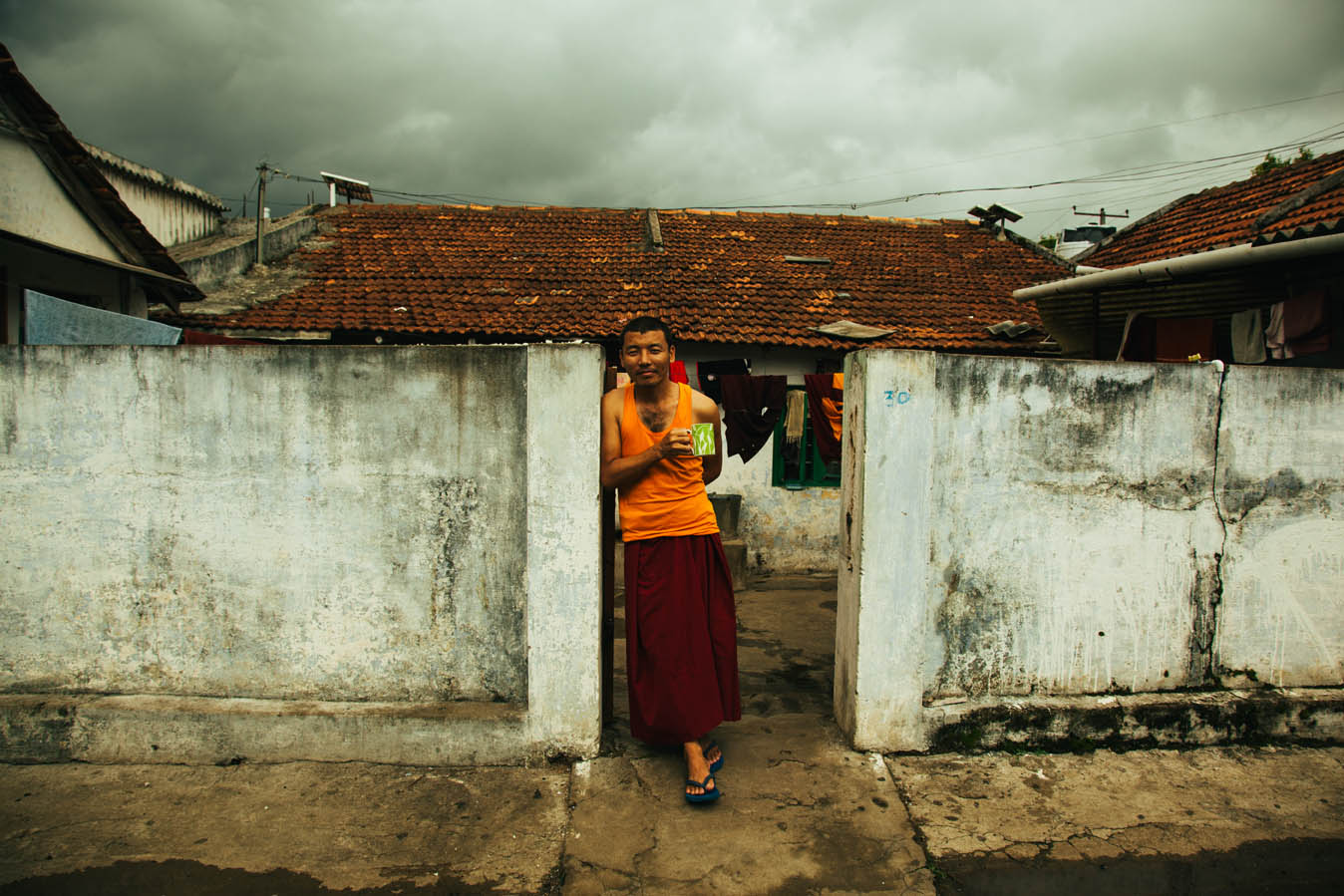This week we are featuring Abhishek Bali- a portrait and documentary photographer based in New Delhi. Abhishek was drawn towards photography during his graduation days. After graduating, he decided to follow his heart and gave up MBA.
Abhishek dedicated himself solely to photography thereafter. He attended workshops, assisted the famous photographer John Stanmeyer and studied creative photography for an year.
Here’s the story of his journey as a photographer.
(View his complete portfolio at baliabhishek.com)

German Actress Christina Einbock
1. What made you choose photography as a profession? What had been your driving force?
I never wanted to work in an office following the 9 to 5 routine. I discovered photography during my graduation days and I became so driven by it that it began consuming most of my time: I was either taking pictures or learning through the works of some great photographers online. I was also preparing for my MBA at that time, and although I got through some colleges, I realized it wasn’t something I wanted to do and that photography is the only thing I wanted to pursue.I took a chance to follow an unconventional dream. And, today, I am glad that I was courageous enough to do that.
There have been many driving forces including my creative friends, my travels, nature and scenic beauty and the many great works (from various fields), which artists have created over the years. I had got selected for a workshop with ‘RaghuRai’, when I just started taking pictures with my cell phone. Those workshops gave me lot of confidence initially to continue with the journey.
Photography, I think, is like a mistress that you don’t want to leave as it drives you. Nowadays I get inspired by a lot of stuff on tumblr or good blogs. It doesn’t necessarily have to be related to photography but all works of art inspire me. I don’t get influenced by others photographers work. I’m trying to get influenced by my own life, take my own photographs and write my own songs.
2. In your “what will remain” section, you mentioned that everything will eventually disappear. How do you wish to alter that through your photography.
I cannot alter that reality but it’s my effort to preserve it, to make the experience immortal. My life is my subject and my subject is my life. Lately photography has become an internal journey and I’ve become more of a storyteller. These pictures might remain(probably somewhere on google) when I’ll become old or even when I have left.

Milkha Singh Portrait
3. Tell us more about your assignment with John Stanmeyer. Would you suggest budding photographers to work with professionals before getting out in the real?
It wasn’t really an assignment for me but I was simply assisting him on the National Geographic’s Sacred Water story in 2009. John was doing this global story in 9-11 countries and I was assisting him on the Indian part of it. It was rather tough to be his assistant. I remember when I was stuck on the boat with photography gear near the shore of the Ganges in Varanasi, and I had to run through the river as John wanted to change the lens and talk to local people. But I learned a lot from him as he is a great mentor and a fantastic human being.
It’s always an advantage if you can work/assist a professional photographer working in the industry. Your skills improve the most on the job and you learn a lot about the industry too. But it’s no way absolutely necessary to go this one way. There are million other ways to become a photographer. There is a lot of information available on the internet and you can do workshops with professional photographers who inspire you.

Roby – Musician & lawyer
4. Have you faced any roadblock in your journey of becoming a commercial photographer?
Umm, not really. My parents were little skeptical about this unconventional profession and they still sometimes get confused about it. This industry is very small and competitive so only become a photographer when you are truly passionate about it. You have to be good at business part of it too. Also, you even have to be a strong hustler apart from having good skills and a great vision.
5. Where do you picture yourself few years from now?
I’m a kind of person who lives in the moment and rarely thinks about the distant future. I would continue doing the similar type of work but I think the work will gradually increase and so will the clients.And so I see myself doing lot of portrait assignments and personal documentary work. Also, I want to travel more in coming years.

Personal work on Indias first election village
6. What kind of equipment and lenses do you use?
My workhorse camera is canon 5D mkii with lenses 24-105mm, 35mm ,50mm and I use Fuji x 100 for my personal work,although camera is just a tool and it changes according to the nature of the project.
7. How important do you think is an online presence for commercial photographers and other creative professionals?
Your physical portfolio would be lying somewhere right now, and only a group can see it even when you are carrying it, but your website, blog and social media presence can be seen from anywhere and anytime by hundreds, thousands, millions without your physical presence. Internet has millions of eyes;and the more people will see your work, the more opportunities you are going to get. Also, it’s amazing to share work with other professionals and build a community.

Micromax Founder Rahul Sharma
8. Do you have any advice for aspiring photographers who wish to excel as a portrait photographer?
Firstly you should be interested in people and should know how to deal with them. Portrait photography needs lot of people skills: making a subject comfortable, being a good conversationalist and working with other people on the set. Also, the knowledge of studying or shaping light is of utmost importance.
Sometimes, on the editorials or the commercial portrait assignments we only have 5-10 minutes to create different set of portraits. So, one needs to make quick interactions, and everything has to be organized before the shoot. I would say: experiment a lot and create lots of personal portrait works. It’s the personal work that will land you assignments and give satisfaction.
9. Finally, tell us about your experience of building your website using Pixpa.
It was very easy to build a website on Pixpa because of easy back-end panel provided by them. Also, it’s the most affordable website developing company out there. I would recommend it to students and upcoming photographers as they have great start-up and student plans.


